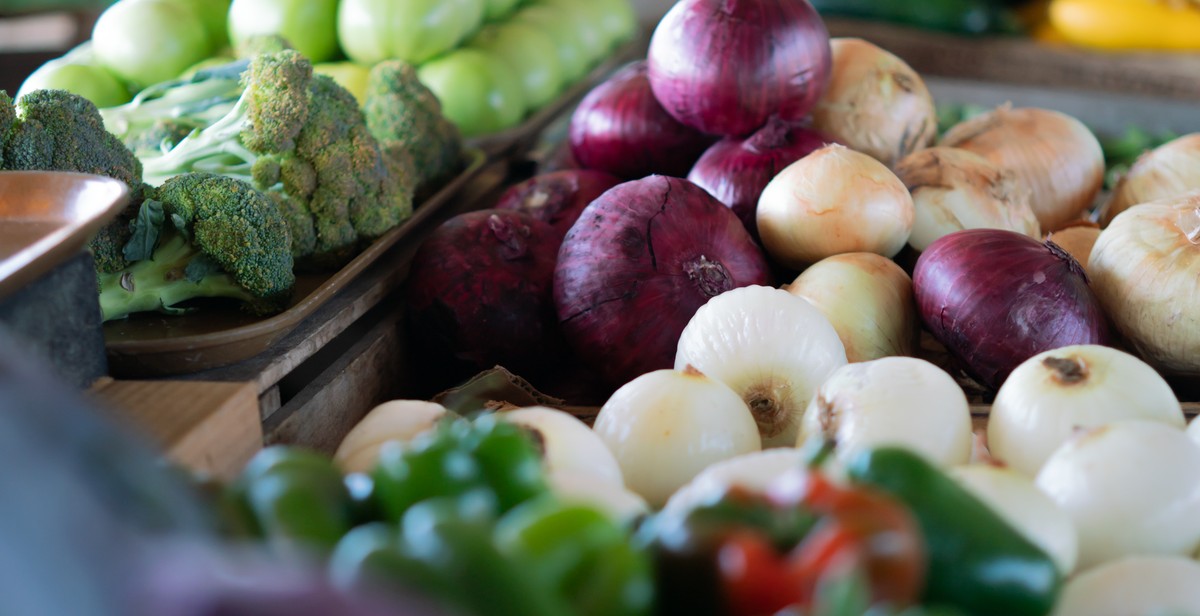The Benefits of Supporting Local and Sustainable Agriculture
Local and sustainable agriculture is a farming system that aims to produce food in a way that is environmentally friendly, socially responsible, and economically viable. It involves growing crops and raising livestock in a manner that minimizes negative impacts on the environment, supports local communities, and promotes the health and well-being of both farmers and consumers.
What is Local and Sustainable Agriculture?
Local agriculture refers to the production and consumption of food within a specific geographic region. This can be a city, state, or even a neighborhood. By supporting local agriculture, consumers can reduce their carbon footprint by minimizing the distance that food travels from farm to table. This, in turn, reduces greenhouse gas emissions and supports local economies.
Sustainable agriculture, on the other hand, refers to a farming system that prioritizes the long-term health of the environment, society, and economy. This means using practices that conserve natural resources, protect biodiversity, and promote soil health. Sustainable agriculture also involves treating farm animals humanely and supporting the well-being of farmers and rural communities.
The Benefits of Local and Sustainable Agriculture
- Reduced environmental impact
- Support for local economies
- Improved food quality and safety
- Promotion of community health and well-being
- Preservation of biodiversity and natural resources
By supporting local and sustainable agriculture, consumers can make a positive impact on the environment, their local communities, and their own health. The benefits of this type of farming system are numerous and far-reaching, making it an important consideration for anyone who cares about the future of our planet.

Benefits of Supporting Local and Sustainable Agriculture
Supporting local and sustainable agriculture has numerous benefits for individuals, communities, and the environment. Here are some of the most significant benefits:
Fresher and More Nutritious Produce
One of the most significant benefits of supporting local and sustainable agriculture is that it provides access to fresher and more nutritious produce. Local farms tend to use fewer preservatives and chemicals in their farming practices, which means that the produce is often fresher and more nutrient-dense. Additionally, local produce is typically harvested at the peak of ripeness, which further enhances its nutritional value.
By purchasing local produce, consumers can ensure that they are getting the freshest and healthiest fruits and vegetables available. This can lead to improved health outcomes, including reduced risk of chronic diseases such as heart disease, cancer, and diabetes.
Reduced Environmental Impact
Another significant benefit of supporting local and sustainable agriculture is that it can help to reduce the environmental impact of agriculture. Sustainable farming practices prioritize soil health, biodiversity, and water conservation, which can help to reduce greenhouse gas emissions and other harmful environmental impacts.
Additionally, local agriculture often involves shorter transportation distances, which can significantly reduce the carbon footprint of food production and distribution. By supporting local and sustainable agriculture, consumers can help to reduce their environmental impact and contribute to a more sustainable food system.
Support for the Local Economy
Supporting local and sustainable agriculture can also provide significant economic benefits to local communities. Local farms create jobs and generate income for farmers and other agricultural workers, which can help to support the local economy.
Additionally, local agriculture often involves direct sales to consumers through farmers’ markets, CSAs, and other outlets. This can help to keep more money in the local economy and support the growth of small businesses.
Preserving Farmland and Rural Communities
Supporting local and sustainable agriculture can also help to preserve farmland and rural communities. Many small farms struggle to compete with large-scale industrial agriculture, which can lead to the loss of farmland and the decline of rural communities.
By supporting local agriculture, consumers can help to create a market for small-scale farming operations, which can help to preserve farmland and rural communities. This can help to maintain the cultural heritage of rural areas and ensure that future generations have access to the benefits of local agriculture.
Strengthening Food Security
Finally, supporting local and sustainable agriculture can help to strengthen food security. Local farms often prioritize crop diversity and resilience, which can help to ensure a stable and secure food supply in the face of climate change, natural disasters, and other challenges.
Additionally, local agriculture can help to reduce reliance on distant food sources, which can be disrupted by supply chain issues or other factors. By supporting local and sustainable agriculture, consumers can help to ensure that their communities have access to a reliable and secure food supply.
| Benefit | Description |
|---|---|
| Fresher and More Nutritious Produce | Local farms tend to use fewer preservatives and chemicals in their farming practices, which means that the produce is often fresher and more nutrient-dense. Additionally, local produce is typically harvested at the peak of ripeness, which further enhances its nutritional value. |
| Reduced Environmental Impact | Sustainable farming practices prioritize soil health, biodiversity, and water conservation, which can help to reduce greenhouse gas emissions and other harmful environmental impacts. Additionally, local agriculture often involves shorter transportation distances, which can significantly reduce the carbon footprint of food production and distribution. |
| Support for the Local Economy | Local farms create jobs and generate income for farmers and other agricultural workers, which can help to support the local economy. Additionally, local agriculture often involves direct sales to consumers through farmers’ markets, CSAs, and other outlets, which can help to keep more money in the local economy and support the growth of small businesses. |
| Preserving Farmland and Rural Communities | Supporting local agriculture can help to create a market for small-scale farming operations, which can help to preserve farmland and rural communities. This can help to maintain the cultural
How to Support Local and Sustainable AgricultureSupporting local and sustainable agriculture is not only good for your health but also for the environment. Here are some ways you can support local and sustainable agriculture: 1. Shop at Farmers Markets and Farm StandsFarmers markets and farm stands are great places to find fresh, locally grown produce. By shopping at these places, you are supporting local farmers and their families. You can also find a variety of fruits and vegetables that are not available in supermarkets. 2. Join a Community Supported Agriculture (CSA) ProgramA CSA program allows you to purchase a share of a local farm’s produce for a season. By doing so, you are supporting the farm financially and also getting fresh, seasonal produce every week. You can find CSA programs in your area by searching online or asking at your local farmers market. 3. Buy from Local Food Co-ops and Independent GrocersLocal food co-ops and independent grocers often source their products from local farms and businesses. By buying from these stores, you are supporting the local economy and reducing the carbon footprint of your food. 4. Participate in Community Gardens or Start Your OwnCommunity gardens are a great way to grow your own food and connect with other like-minded individuals. If there isn’t a community garden in your area, consider starting one with your neighbors or friends. 5. Advocate for Local and Sustainable Agriculture PoliciesAdvocating for local and sustainable agriculture policies can help support small farmers and promote sustainable farming practices. You can contact your local representatives and voice your support for policies that prioritize local and sustainable agriculture. |
